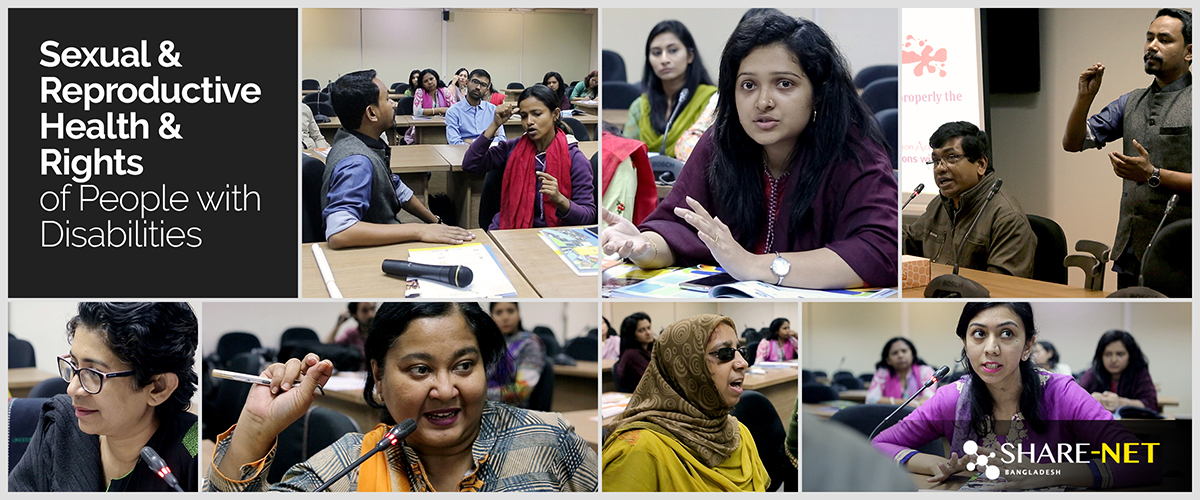The underscored needs of SRHR for people with disabilities
“Children with disability are tremendously vulnerable to sexual abuse” said Anika Rahman Lipy, Assistant Director of Center for Disability in Development (CDD). She was one of the speakers at a Resource Group Meeting held in Dhaka this week.
Lipy talked about how the behavior of disabled children change as they grow up. Like everyone else, they reach puberty and undergo many emotional and physical changes that are often misunderstood and ignored by parents, elders and the society in general.
The aim of the event was to discuss how to create an inclusive approach to the underscored needs of Sexual and Reproductive Health and Rights (SRHR) of people with disabilities. The meeting was hosted by the Share-net Bangladesh team, RedOrange Media and Communications and James P. Grant School of Public Health (JPGSPH).
Speakers from multiple organizations discussed various complications deriving from stigma, physical barriers, discrimination, lack of advocacy, information and awareness about their needs.
Jibon Gomes, Executive Director of Turning Point Foundation, spoke about the inequalities faced by a people with disability, saying “no matter what kind of disability we have, we are first and foremost human beings, and we should be able to attain our fundamental rights.” He also pointed out the lack of adequate research, data and programs, along with the gaps present in government policies regarding SRHR of Disabled people.
Shirin Akhter, Chairman of Woman with Disabilities Development Foundation, told about her personal experiences seeking public health services. She has encountered ignorance and preconceived notions towards disabled people.
“It puts them at a greater risk of sexual and mental abuse,” she said.
Multiple layers of vulnerability unfolds as people with disability want to attain their SRHR rights. Policymakers have failed to notice obstacles disabled people face in their social environment. Women and children are at a much greater risk of sexual abuse and violence, as they are often marginalized and do not get proper access to legal and aid services.
Speakers also stressed on the need to include SRHR knowledge on curriculum levels, so that the mindset of the population shifts to being more sensitive about these issues.
The discussion ended with a congruent note that the government and development agencies, workers and practitioners should take necessary steps to implement SRHR service and facilities by harmonizing policies and laws, organizing workshops, awareness raising activities, and by making sure that the services are accessible, affordable and inclusive for all persons with disabilities.



